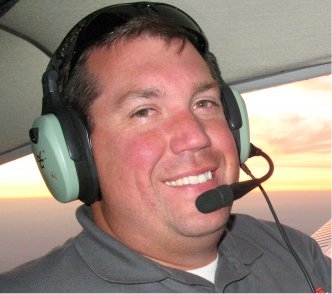‘Nope, not today’
More avoidable reasons for checkride cancellations
In this installment we’ll consider three additional factors that will make a checkride a nonstarter: incomplete aeronautical requirements; last-minute cancellations; and tardiness.
Incomplete aeronautical requirements
Last weekend I showed up to conduct a private pilot test, only to find that the applicant was 0.2 hours short of the five required cross-country solo flight hours to be qualified for the test. This meant that the applicant needed to fly an entirely new cross-country flight to make up the 0.2 hours needed. I wasn’t able to wait for the applicant to do this, so we didn’t do the test on a rare beautiful winter day in Michigan. My schedule prevented me from rescheduling the applicant for two weeks. This is not only sloppy on the part of the training provider to allow them to come to a test unqualified, it is also an expensive disservice to the customer.
The student certainly isn’t going to be able to fly more than 50 miles and make a landing and return in 0.2 hours; it is more likely going to take 0.8 or more. That means the applicant is paying for 0.6 more flight time than necessary if on a previous cross-country flight he had only flown 0.2 more, maybe by doing a couple extra trips in the pattern. Some planning earlier in the training could have avoided this extra cost and the delay in the testing. It also means that the applicant will probably need to fly over the next two weeks to stay current, racking up more expense, until we can complete the test.
Missing night flight time or landings, short instrument instruction (especially when using unapproved simulators), or missing solo and cross-country times are the worst offenders of missing aeronautical requirements. With a quick internet search, a diligent instructor can easily find numerous checklists that can be used to make sure an applicant is qualified before the examiner is called.
Last-minute cancellations
“Well, Mr. Smith isn’t ready for that test this afternoon that we scheduled,” is a common phone call examiners get.
“Then why did you schedule it in the first place?” we can’t help but wonder.
Many instructors schedule tests for students who are not anywhere near ready for a test, just to get onto an examiner’s schedule. Some examiners don’t mind this practice to some degree, if it is communicated with the examiner that that is what is happening. If both parties are willing to schedule something that may potentially need to be rescheduled, then at least both sides are aware.
But when this keeps happening, it means the examiner is blocking time in his or her calendar that could have been used for a prepared applicant. When numerous cancellations are taking place, it means the examiner ends up with holes in a schedule that should have been able to be used to complete tests. The more of these that happen, the fewer tests they are able to complete.
A cynic may say, “Oh, gee, so the examiner doesn’t make as much money as he could,” but it is about more than that. It also means that the examiner won’t test as many students, including someone else who was ready and could have used the slot that is wasted. Think throughput here: If an examiner can do two tests in a day and works five days a week, when properly prepared, he should be able to test 10 students in a week. If three of your students cancel at the last minute and the examiner can’t move someone else into that time slot, it means a 30-percent reduction in the students who are able to complete tests.
This may seem like a high percentage, but it is about what examiners experience as a percentage of scheduled tests that result in cancellations. Make sure when you schedule a test that the applicant really will be ready on the day it is scheduled.
Tardiness
An examiner can conduct two practical tests in a single day (with limited exceptions—currently only one CFI initial test). This means that the examiner must schedule these tests with enough time to complete them, and enough time between them if there’s a need to travel to another location. When an applicant is late for a test, the examiner may have to reschedule.
Many examiners do the best they can to accommodate applicant schedules, but they are trying to keep a schedule also. If your applicant was scheduled for 8 a.m. and wasn’t ready until 11 a.m., but the examiner has another test at 1 p.m., it is likely he is going to tell the first applicant he will have to reschedule. You would be surprised how many times examiners have had complaints filed against them with their flight standards district office because they “wouldn’t wait for the student” who was running late.
When it comes to checkride day, the job of the examiner really is that of a last check, not a training or preparing role for the applicant. The job of the flight training provider is to make sure the applicant and the aircraft are ready for the test. Take that job seriously, and you will find your applicants more successfully proceeding to the testing phase of checkride day.



